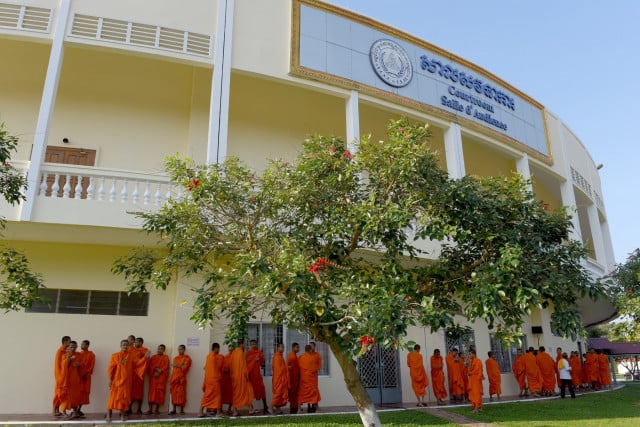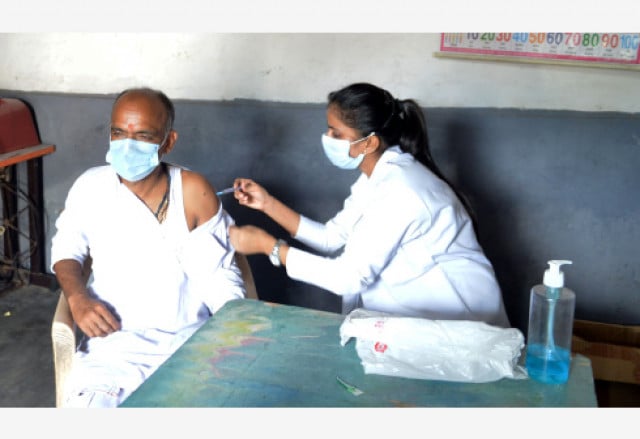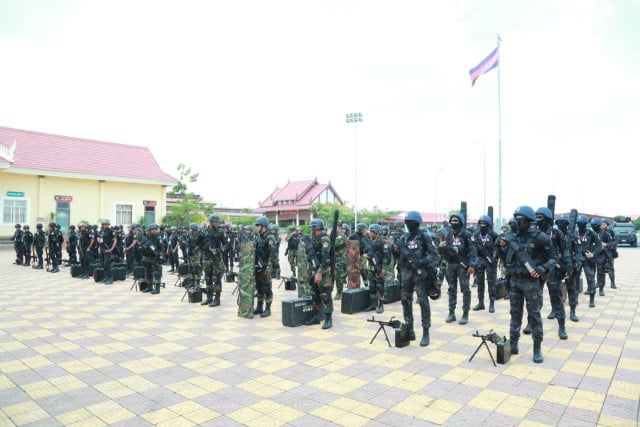The ECCC Court Building Is Returned to the Royal Cambodian Armed Forces

- By Meng Seavmey
- December 31, 2022 7:10 PM
PHNOM PENH — The building in which the Extraordinary Chambers in the Courts of Cambodia (ECCC) conducted the trials of the Khmer Rouge leaders was officially returned to the Royal Cambodian Army on Dec. 28, marking the end of the judicial process that will have lasted 16 years.
During the handover ceremony, Lieutenant General Hun Manet, deputy commander-in-chief of the Royal Cambodian Armed Forces, said that the ceremony was a testament to the closure of the Khmer Rouge Tribunal’ proceedings against the regime’s leaders. The building will be a place where the work for national defense will be conducted as was the case prior to becoming a place where justice was sought for the Khmer Rouge victims, he said, according to an ECCC Facebook post on Dec. 29.
ECCC’s spokesperson Neth Pheaktra said that, as of Jan. 1, 2023, ECCC officials and staff will finish their work in the office of the Legal Documentation Centre, which is located next to the Office of the Council of Ministers on Russian Federation Boulevard (Street 110).
Following the agreement between the court and the United Nations—the ECCC was created by the Cambodian government and the U.N.—the work to be completed includes preparing the court records and case-related documents so they can be made available to the public to read and research, and also promoting the achievements of the court over the last 16 years.
According to the ECCC Facebook post, the building on the Royal Cambodian Army’s grounds was turned over to the ECCC by the Cambodian government in 2006 when the Cambodian authorities and the United Nations agreed to jointly set up tribunals staffed by both international and Cambodian judges and lawyers.
From 2007 on, the Extraordinary Chambers in the Courts of Cambodia (ECCC) worked on bringing to trial Khmer Rouge leaders who had been responsible for the death of more than 2 million people while they ruled the country from April 1975 to January 1979. The final judgment, Case 002/02 against Khieu Samphan, was rendered by the court in late September 2022.
The tribunal took 16 years to finally get justice for the victims, costing around $337 million . The Cambodian government provided $45 million and foreign countries the remaining $292 million.
The nine leaders tried during those 16 years were: Kiang Guek Eav known as Duch (dead), Meas Mut, Yim Tith, Im Chaem, Ao An (dead), Nuon Chea (dead), Kieu Samphan, Ieng Sary (dead), and Ieng Thirith (dead).
Khieu Samphan was the last defendant to be sentenced in September 2022. Condemned to life imprisonment, he remains at the provisional detention facilities that the ECCC had set up at the beginning of the trail. As soon as arrangements are finalized, he will be transferred to a Cambodian prison, according to the agreement between the Cambodian government and the United Nations, said ECCC’s spokesperson Neth Pheaktra.















